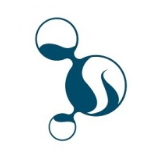| Product | |||
|---|---|---|---|
| Review & Ratings |
No reviews available |
No reviews available |
|
| Description |
Decisions is a powerful decision support software designed to help businesses make informed, data-driven decisions through automation, analytics, and process management. The platform allows users to create custom workflows that automate repetitive tasks, gather data from multiple sources, and generate real-time insights that support better decision-making. Decisions offers a visual interface where... Read more about Decisions |
Iterop is a workflow management software designed to streamline processes, increase productivity, and ensure seamless collaboration across teams. With Iterop, organizations can automate repetitive tasks, track project progress, and manage resources more efficiently. The platform offers customizable workflows that can be tailored to suit the specific needs of different teams or departments. Iterop�... Read more about Iterop |
|
| Free Trial |
NA |
Available |
|
| Starting Price |
$17000 Per Month |
$10 Per User |
|
| Category Features | |||
| Other Information | |||
| Deployment | Cloud Hosted , On-Premise | Cloud Hosted | |
| Devices Supported | Web-Based, Windows, Linux | Web-Based, | |
| Pricing Model | Contact Vendor | Per User | |
| Support | 24x7 Support, Email, Phone, Chat, Knowledge Base | Email, Phone, Chat, Knowledge Base, FAQs/Forum | |
| Target Company Size |
Self-Employed,
Small-Business,
Midsize-Business,
|
Self-Employed,
Small-Business,
Midsize-Business,
|
|

